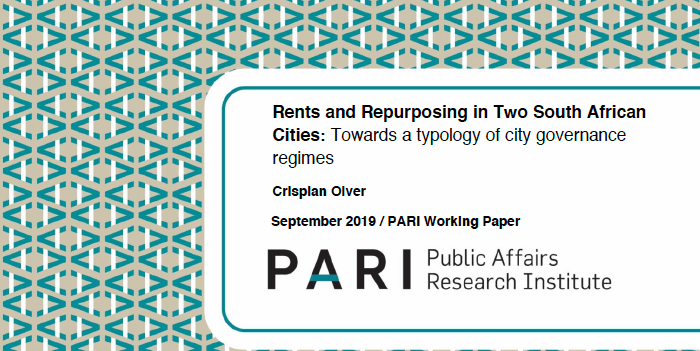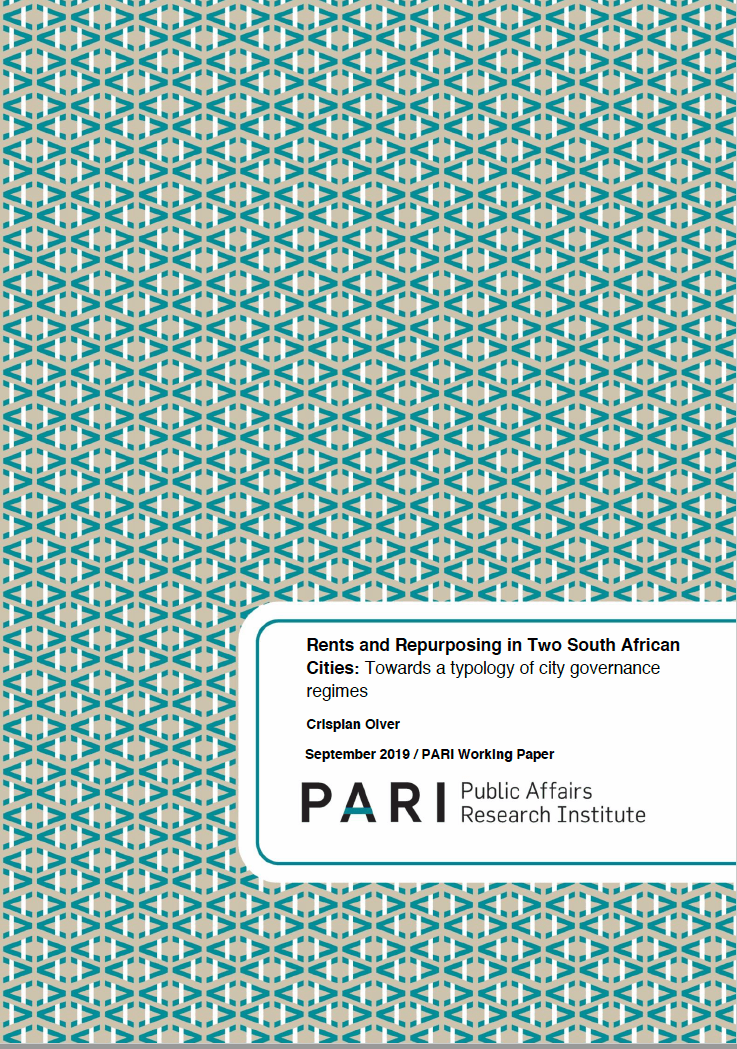Towards a Typology of City Governance Regimes
By Crispian Olver
Abstract
The systemic nature of corruption in local government needs to be understood it terms of the social and economic forces acting on the state, particularly the formation of new classes and elites within the dynamics of the South African political transition. Through case studies of two metropolitan municipalities, Cape Town and Nelson Mandela Bay, the paper explores the way in which the economic advantages at the disposal of local government, referred to as rents, are distributed according to the changing power relations in cities. The research conducted by the author into the City of Cape Town is the subject of a forthcoming book, A House Divided – The Feud That Took Cape Town To The Brink, to be published in November 2019. Governing regimes form and wield effective power through an informal coalition of political, institutional and entrepreneurial actors. The regimes are distinguished in terms of the way that power is structured, the nature of the rents that are allocated, and their developmental outcomes. Cape Town’s ‘growth machine’ model, founded on intimate relationships between developers and political leaders, exercises centralised control over land rights which are allocated to established property interests. The weaker ‘clientelist’ regime in Nelson Mandela Bay distributes an ever-decreasing pool of procurement rents to sustain a decentralised patronage-based model. The paper suggests that the two regimes constitute the opposing poles of a spectrum of local governance arrangements. Despite the better development outcomes of growth machines, neither regime specifically advantages the urban poor. The paper concludes by suggesting ways in which socially inclusive urban regimes can be constituted and rents directed to better serve public interest.



